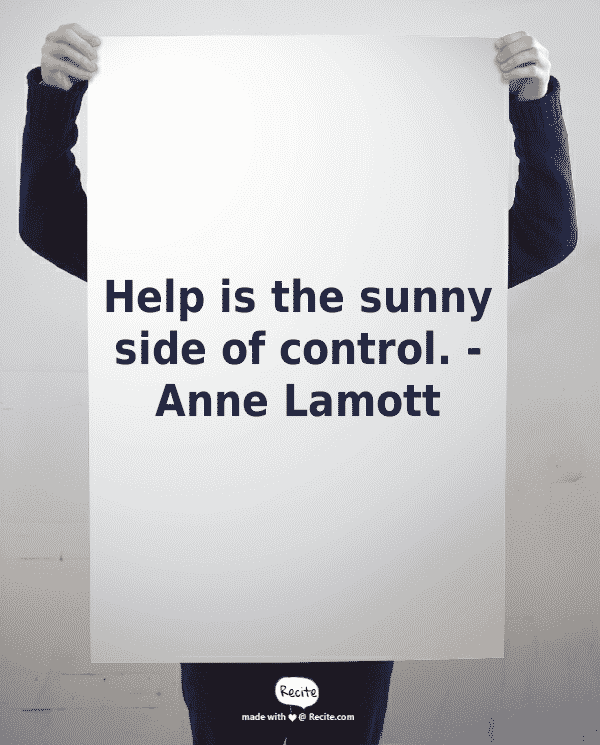Adding more thoughts to yesterday’s post about the words we use, I have an email in my Set Aside box from Aug. 25 from Courtney Carver titled “How to deal with unsolicited advice.” Since I purposefully subscribed to her newsletter, I suppose the email and its contents are not unsolicited, and I suppose that since you are choosing to read these words, everything herein isn’t unsolicited for you, either, however it is still ironic.

This one is too good to keep stashed in my mailbox and I keep going back to reread it. Read on and then tell me how it makes you feel.
Question
This topic was prompted by a question she had asked readers:
“What do you tolerate on a regular basis because you think you are supposed to?”
To which many people replied:
“‘Dealing with unsolicited advice’ about a variety of topics; what I eat, how I parent, my work, what I’m wearing, how I look, what I do with money and more!”
This prompted her to put this list together. Here is the link and I’ve also pasted it in its entirety.
Dealing With Unsolicited Advice: 10 fascinating things to consider before giving or receiving advice
by Courney Carver
1. You don’t have to be so helpful.
Anne Lamott says, “Our help is usually not very helpful. Our help is often toxic. And help is the sunny side of control. Stop helping so much. Don’t get your help and goodness all over everybody.” Oh, ouch! Help is the sunny side of control?!
I’ll admit, I often think of my advice as “being helpful” which is why seeing it through Anne Lamott’s eyes is so powerful. It makes me wonder, do I want to help or do I want to control the situation. What about you … helpful or controlling?
2. Ask first
Ask yourself, “Does this person want my advice?” If you aren’t sure, ask them. “Is it ok if I tell you what I think?” or “Do you want my advice?” If they say no, believe them.
3. Tell first.
When you are talking to your people about something, be clear about what you’d like in response. If you don’t want advice, say, “I’d like to share this with you and I am not looking for advice.” or “I don’t want advice or feedback but instead I just want to say this out loud. I want to vent.” And then just to be really clear ask, “Is that ok with you?”
In some cases you may be actually looking for advice and you can ask for it.
4. Stay in your business.
This goodness from Byron Katie always reels me in, “There are only three kinds of business in the universe: mine, yours, and God’s.
- Whose business is it if an earthquake happens? God’s business.
- Whose business is it if your neighbor down the street has an ugly lawn? Your neighbor’s business.
- Whose business is it if you are angry at your neighbor down the street because he has an ugly lawn? Your business.
Life is simple—it is internal.
Count, in five minute intervals, how many times you are in someone else’s business mentally. Notice when you give uninvited advice or offer your opinion about something (aloud or silently).
Ask yourself: “Am I in their business? Did they ask me for my advice?” And more importantly, “Can I take the advice I am offering and apply it to my life?”
I am constantly asking myself, “Is this my business?” 9 out of 10 times, it’s not. Next, I consider the advice I had ready to go and see if I can apply it to my own life.
5. Consider past exchanges.
Has my advice been well received in this relationship in the past? If your advice has been routinely dismissed or debated, stop offering it. Instead ask, “How can I help?” or just listen. Not everything requires a response.
6. Don’t be mistreated.
When advice crosses the line to commenting on your clothing, body, or other things that are completely inappropriate, speak it. “That’s inappropriate.” One of my favorite quotes is from Elizabeth Lesser. She so eloquently says, “Do no harm, take no shit.”
7. Let it go.
Once you give your advice (with permission), let it go. You’ve given it to someone else and it’s up to them to decide what to do with it. It’s kind of like writing a book. You can’t tell people how to read it, when to read it or even to read it at all. You don’t get to control how other people receive your words.
When you receive advice, if it doesn’t resonate, let it go. If you feel pressured to act or follow through, you aren’t dealing with advice, you are dealing with expectations. You don’t have to deal with those at all.
8. Re-frame your advice.
When giving it … Instead of telling others what they should do, remind them that this is what has been helpful for you or how you imagine you would move forward in their situation. Reinforce self trust, “You know what’s best for you.”
When receiving it … When you are blindsided with unsolicited advice that isn’t welcome or helpful, simply say, “Thank you for the thoughtful feedback.” Then see #7.
9. Don’t take advice too seriously.
When I’m considering advice, especially unsolicited advice. I do a quick scan and ask the following questions,
Is this person qualified to offer this advice? For instance, If someone is offering me medical advice and they are not a medical professional, I’ll say thank you and do my own research.
Why am I so resistant to or bothered by this advice? Often, it’s because the advice isn’t helpful but sometimes it’s because it’s something I really need to hear and really do not want to hear.
Even though I don’t love it all, is there a bit of goodness here? In other words, don’t throw the baby out with the bathwater. (P.S. That’s a terrible saying but perfectly illustrates what I’m going for here.)
10. Trust yourself.
Before you seek advice, check in with yourself. Take good care and check in again. After you get advice, check in again. Put your hands on your heart, breathe and ask, “what’s best for me?” Trust the answer.
The fascinating part of these 10 things is that the next time, before unsolicited advice is coming out of our mouths or when it is pouring into our ears, we can think about it differently and might not have to be dealing with unsolicited advice at all. It’s fascinating that in many situations, by changing our thoughts, we can change our experience.
My Truths with Unsolicited Advice
My massive smack in the face from this list is number one, that gem from Anne Lamott.
Our help is usually not very helpful. Our help is often toxic. And help is the sunny side of control. Stop helping so much. Don’t get your help and goodness all over everybody.
– Anne Lamott
OUCH.
I’ve had this list for over two weeks now and I’m still picking out the shrapnel and applying band-aids over this one. “Help is the sunny side of control.” New mantra for me, so true, so me, so yuck.

You can hear it in it’s original form along with 11 other pieces of brilliance here:
How To Change
In the time since receiving this list from Courtney, I read Katy Milkman’s book How to Change. In the chapter on confidence, there’s a section about unsolicited advice, of course, backed by research and data.
It turns out, people that are lagging in an area, performing poorly, seemingly “needing advice” from those more in-the-know about whatever/anything, these people typically already know. They aren’t lacking information. They are lacking confidence.
Goal strivers are sometimes plagued by insecurity. In fact, a lack of self-efficacy can prevent us from setting goals in the first place. Research confirms the obvious: when we don’t believe we have the capacity to change, we don’t make as much progress changing.
– Katy Milkman, How to Change
Milkman posits that by giving well-meaning unsolicited advice in an attempt to help with ignorance, we are actually making things worse. The issue is most likely confidence, not ignorance, and our words have an underlying message that we don’t have confidence in their ability to figure it out on their own.
In an experiment run by one of Milkman’s graduate students, Lauren Eskreis-Winkler, the script was flipped. Failing goal-seekers were asked to offer advice rather than receive it which resulted in much higher levels of confidence and motivation.
Think about it. When you give advice or offer help, doesn’t it help you feel better and more confident about what you know and have shared? The next time I’m tempted to offer unsolicited advice, I’m not only going to remember Anne Lamott, but I’m also going to flip the script and ask questions instead.

I recommend reading her book to get the full details. It is brand new and full of excellent ideas and research.
My Unsolicited Advice
Since I said I’d flip the scrip and ask questions instead…
Which of these ideas hits you? How does receiving unsolicited advice feel to you? How do you feel about your own giving of unsolicited advice now that you’ve read this?
I’d love to know your thoughts.
If you have landed on this page from an external link, please go HERE to read from the beginning. Otherwise, click on the next title below to continue.


Leave a Reply
You must be logged in to post a comment.